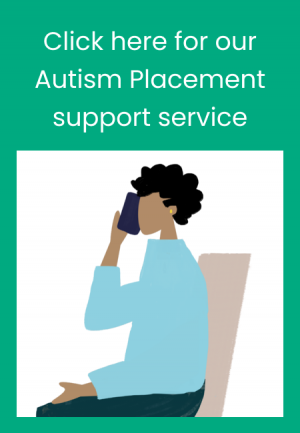This article on autism and dental healthcare is offered by Community Dental Services CIC with tips, suggestions and an oral health toolkit.
Community Dental Services CIC is a 100% employee-owned social enterprise providing community dental services to the NHS throughout much of the Midlands and East of England.
Caring for patients who require additional considerations are at the heart of Special Care Dentistry and patients referred to CDS often have very complex needs.
People who are autistic can find visiting a dentist especially stressful. This could be down to sensory issues, communication difficulties, lack of understanding around what is happening and why, and sometimes an invasion of their personal space.
Autism and dental healthcare – challenges at the dentist
Things that could be very challenging to autistic patients include:
- the smell of the dental clinic;
- having someone get very close to examine their teeth;
- having a bright light shining in their face;
- visiting a clinic they are not familiar with;
- the noise of the drill or cleaning equipment;
- having cold metal instruments in their mouth;
- the taste of the toothpaste or mouthwash.
Ask your dentist if they have anything that would help, for example, at CDS we take extra measures to make visiting the dentist a more comfortable experience:
- We provide Easy Read literature that explains many procedures without unnecessary jargon.
- We provide virtual tours of our clinics online to provide familiarity before visit and we can even arrange in person familiarisation visits before any treatment takes place.
- We take the time to get to know the patient and their parents or carer if present, to find out what makes them uncomfortable and what might help make the visit easier for them to tolerate, for example, playing a particular song on a continuous loop may make them more at ease.
As well as trying to ensure regular dental check-ups, maintaining good oral health on a daily basis is also very important.
Here are some pointers for maintaining good oral health:
Brushing
-
- Where possible, aim to brush twice a day, ideally before bedtime and at another time to suit your routine.
- It is recommended to brush for 2 minutes. Some may find it beneficial to use an app or timer.
- Use a toothbrush to suit – it could have a small head with soft bristles, manual or electric, maybe an adapted toothbrush such as Dr Barman’s/Collis curve, which allows the whole tooth to be brushed at once. Whatever your choice, you should replace your toothbrush every 2 – 3 months, before the bristles have become splayed and following any illness.
- Use a toothpaste with the correct amount of fluoride. 0-7 years old – at least 1000 ppm. Over 7 years old – 1350ppm or more. Some people will benefit from a higher prescribed toothpaste from their dentist, so ensure this is discussed at a check-up.
- For those who cannot spit out their excess toothpaste, use a smear of toothpaste. Those who can spit out, can use a small pea sized amount.
- Some people will find it beneficial to use a non-foaming, non-flavoured toothpaste, such as OraNurse.
- Following toothbrushing, spit out the excess toothpaste – do not rinse!
Diet
-
- Keep sugary foods and drinks to a minimum and with a mealtime, or immediately after as a pudding.
- Snack on no sugar containing foods, and drink water, milk, tea or coffee (without sugar) between meals.
- An app such as the NHS food scanner to monitor how much sugar is in your food and drinks might be beneficial.
- Be aware of common children’s snacks – these are often very high in sugar.
- Some tooth friendly snacks include cheese, crackers, vegetables, fruit in its raw form, natural yogurt, bread sticks and hummus.
- Foods to avoid between your meals include sweets, chocolate, fruit changed in anyway (dried, cooked or blended), flavoured yogurts, cereal bars, and biscuits.
- Sugar free or diet drinks are still acidic and not tooth friendly.
Dental Visits
- See a dentist every 6 months for a dental check-up unless agreed differently with your dentist.
- Prepare for dental visits by watching videos such as virtual tours or reading books.
- Ensure you take a list of current medications and any proof of exemptions to your appointments.
- Some dental practices offer a quiet hour, enquire with your practice to see if this is something they offer.
- Talk to the dental team before you attend, so they know what to expect and can plan to get best reaction from the patient.
- Fissure sealants and fluoride application are available at the dentist’s discretion to provide extra protection to patients who need it.
- Dental care is free for all up until the age of 18 or 19 (if full time education).
- There is NHS availability – You can get advice from NHS 111 and nhs.uk
Community Dental Services and Leading Lives have developed this toolkit to help people with additional needs, including people who have autism, manage their own oral health. We hope it will support people with a variety of needs in a range of settings.
The toolkit covers key information about oral health and diet with a quiz at the end of each section. There is also a video on visiting the dentist.
Leading Lives and Community Dental Services are both employee-owned social enterprises, committed to reducing health inequalities in our communities.
Click to visit our Oral Health Toolkit
________________________________________________________
If you need help looking for services for an individual with an autism spectrum condition, we will do our best to help. Click below for the Autism Placement Support Service.




